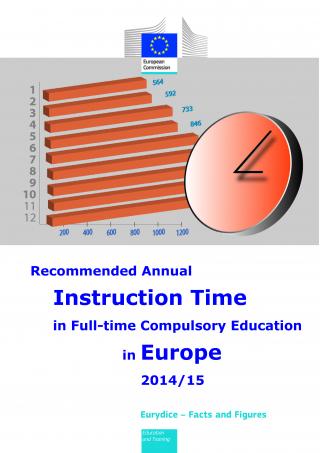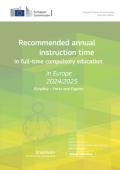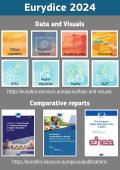Recommended Annual Instruction Time in Full-time Compulsory Education in Europe 2014/15
Full version EN
Summary DE ES FR HR RO SLA SR TR
An analysis of recommended annual instruction time suggests that countries have a very similar focus on key basic competences in compulsory education. At primary level, most countries' main focus is on reading, writing and literature (about 25 % of total instruction time). Mathematics takes the second largest share of total instruction time, at around 15 %. Many countries put a stronger focus on languages at compulsory secondary level compared to primary level. The report also finds that only a minority of countries allow for the flexible allocation of time between and across grades. It includes information on instruction time in national data sheets, and country specific notes. The data is presented in diagrams, detailing instruction time by country, by grade and by subject. Data collection took place across all 28 EU Member States as well as Iceland, Liechtenstein, Montenegro, Norway, Serbia and Türkiye. Data collection was a joint undertaking between the Eurydice network and the OECD (NESLI network). The reference year is 2014/15.
Contents:
INTRODUCTION
PART I: SCOPE AND DEFINITIONS
PART II: COMPARATIVE ANALYSIS
PART III: NATIONAL DIAGRAMS
Section 1. Reading guide to national data sheets and acronyms and abbreviations
Section 2. Instruction time by country
Section 3. Instruction time by subject
Section 4. Appendix
Section 5. Country specific notes





